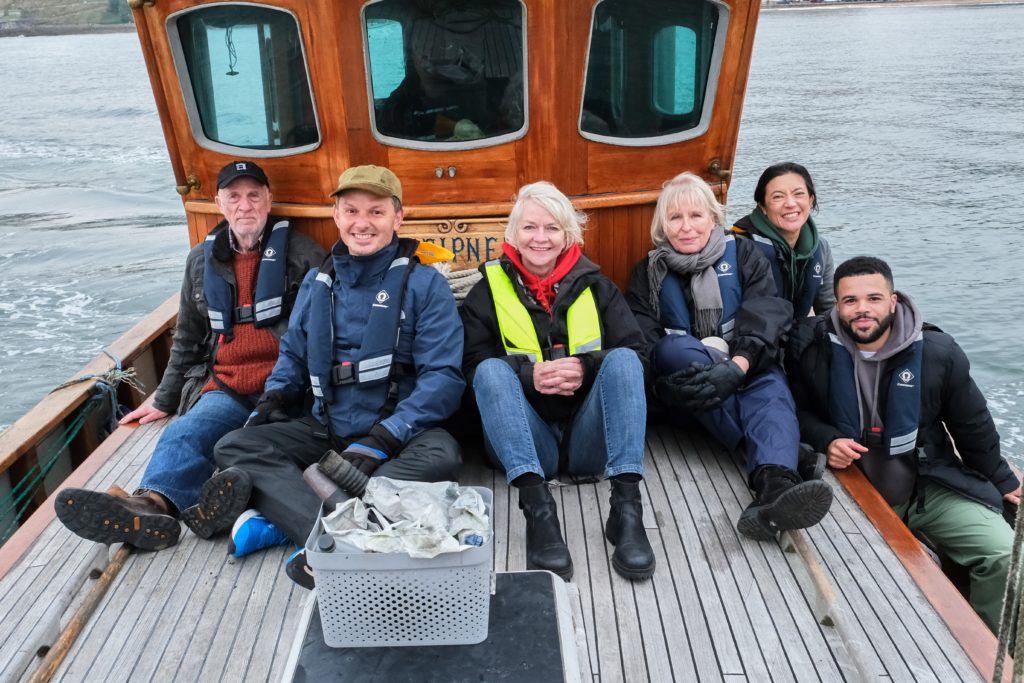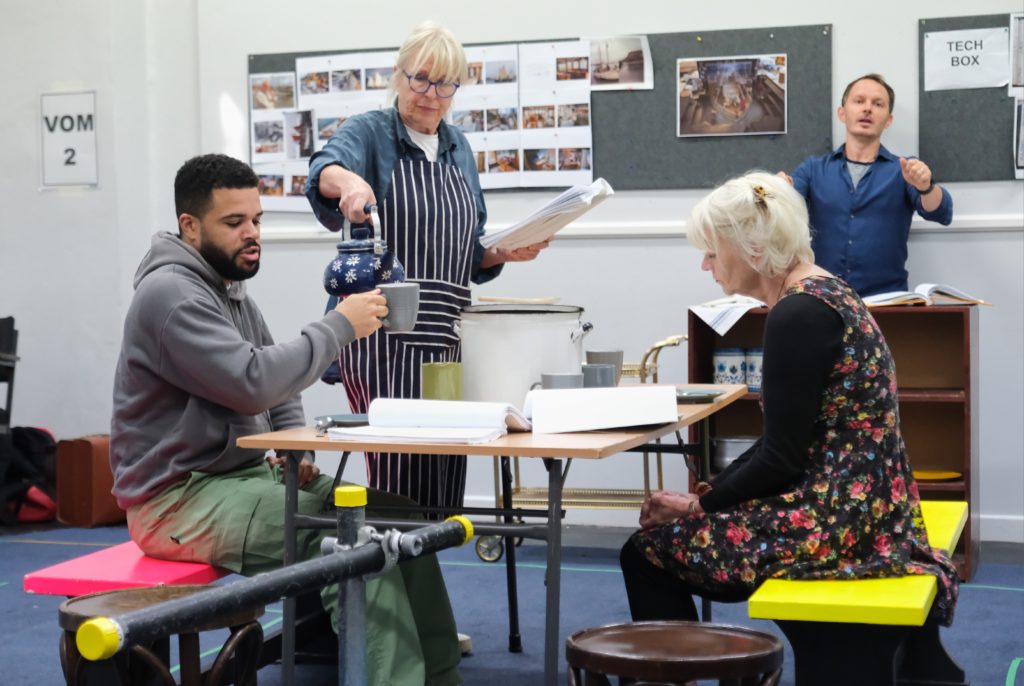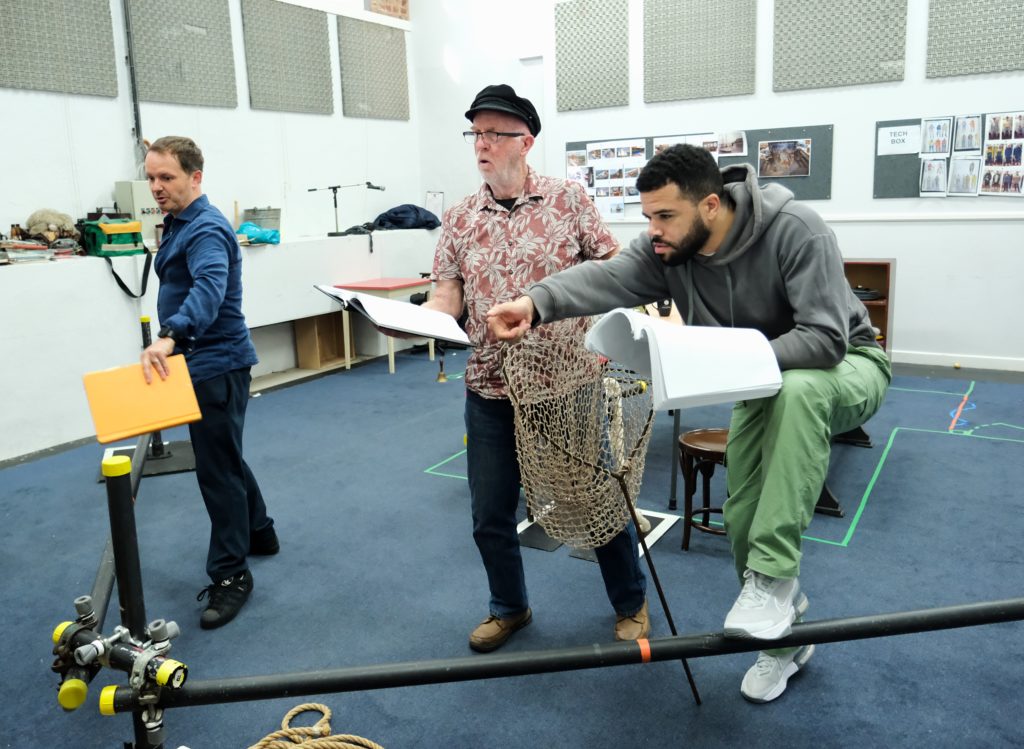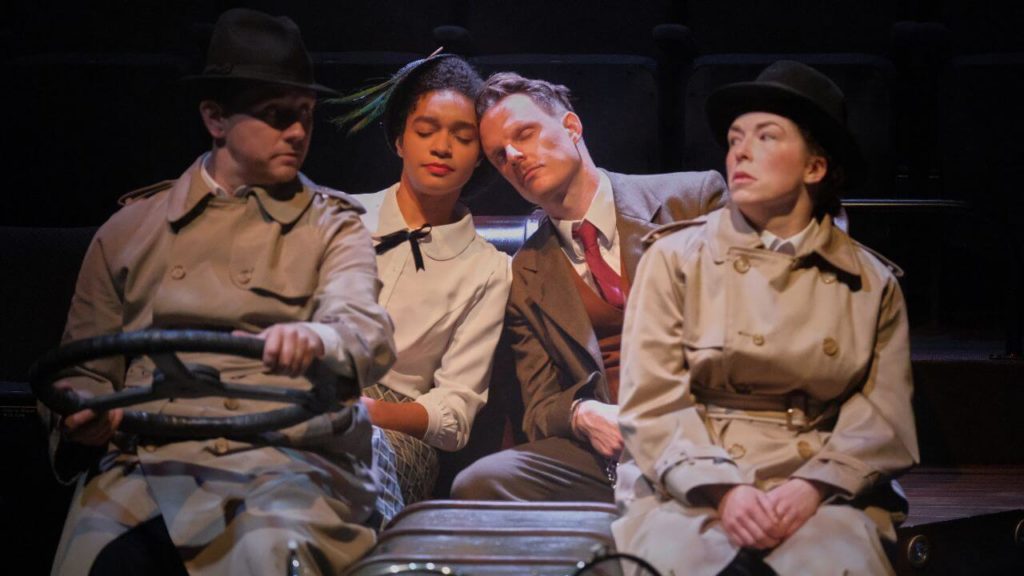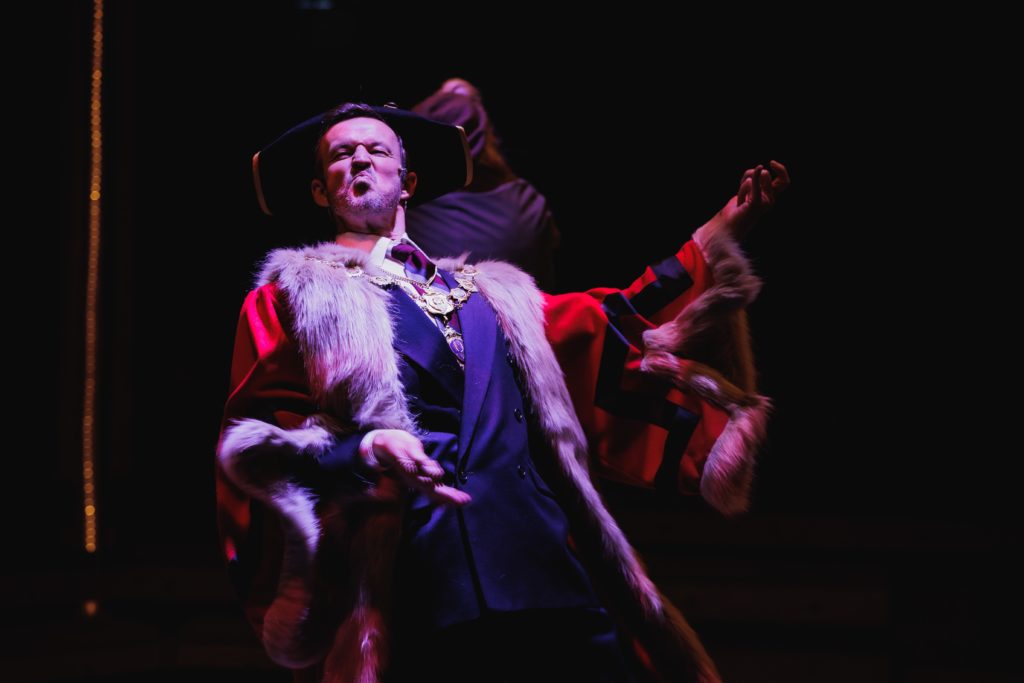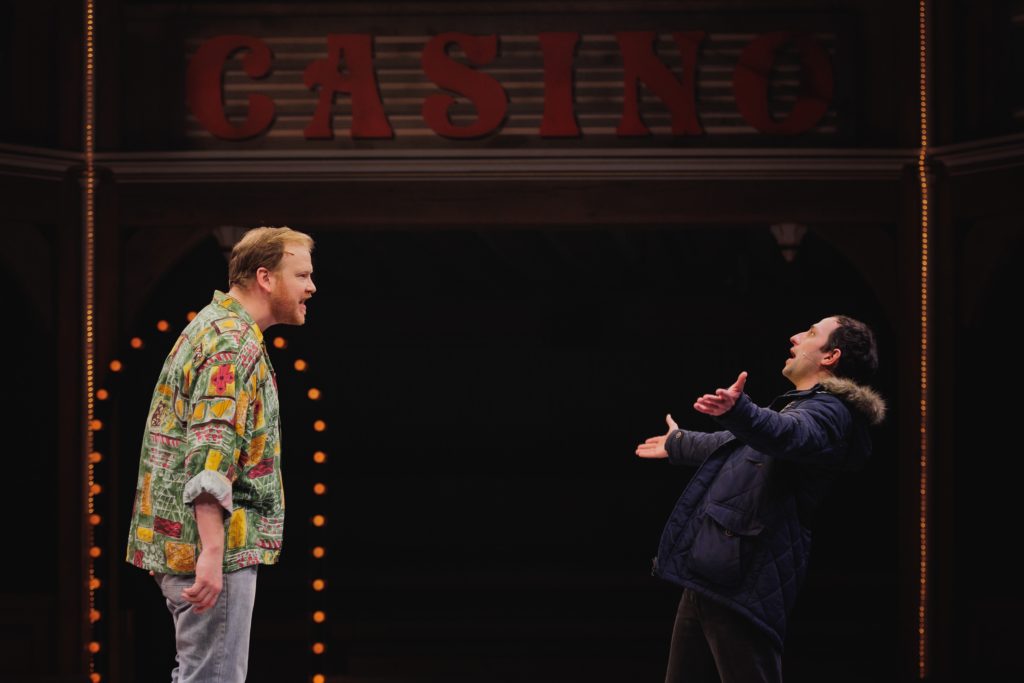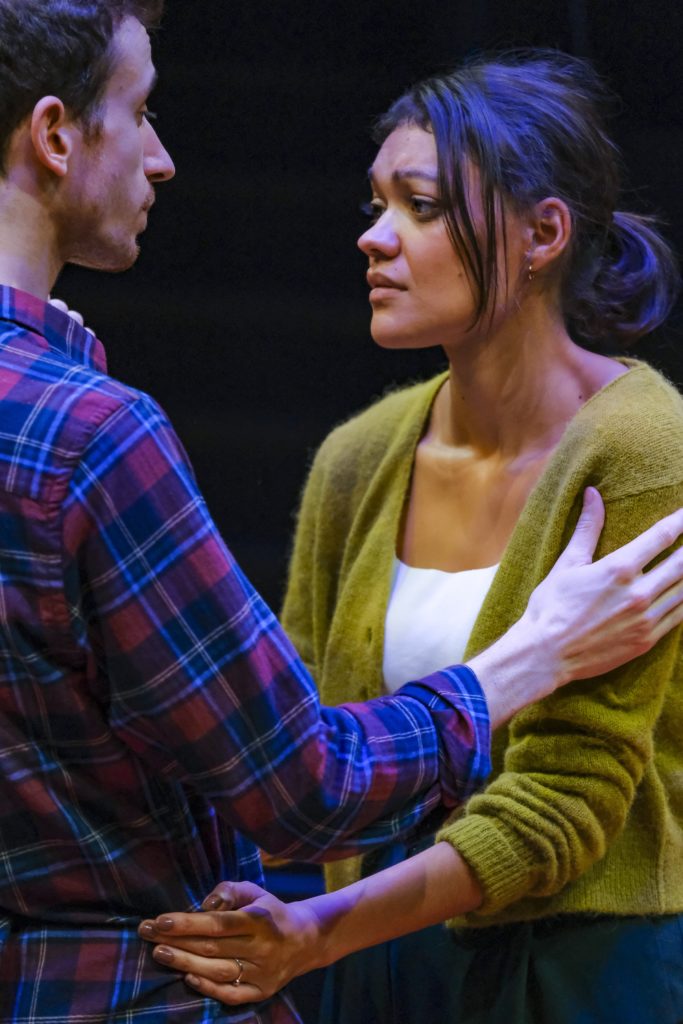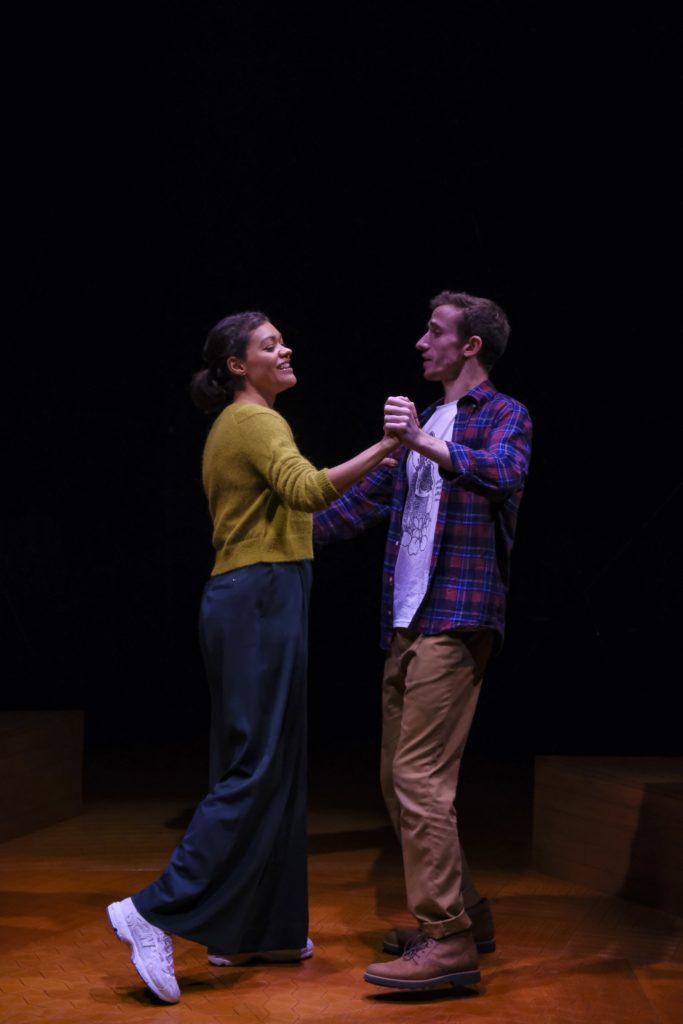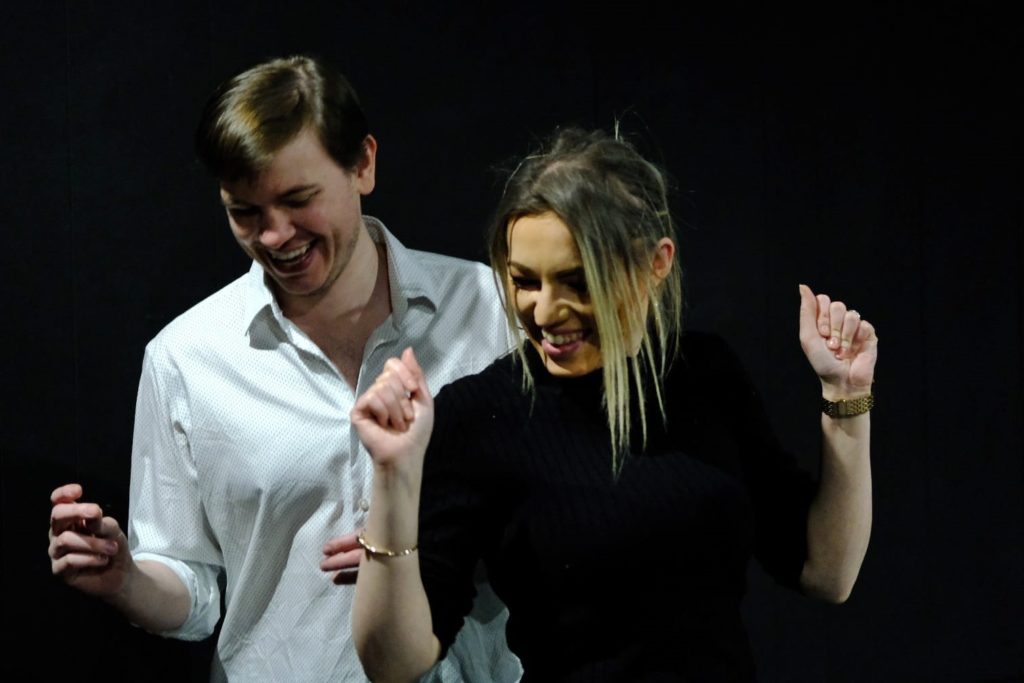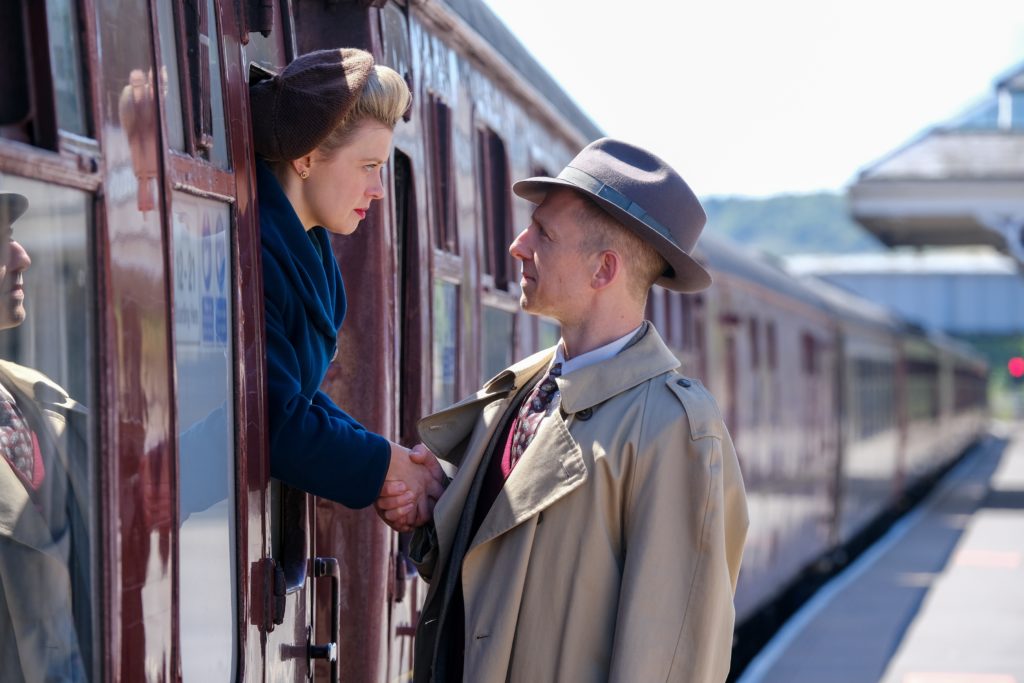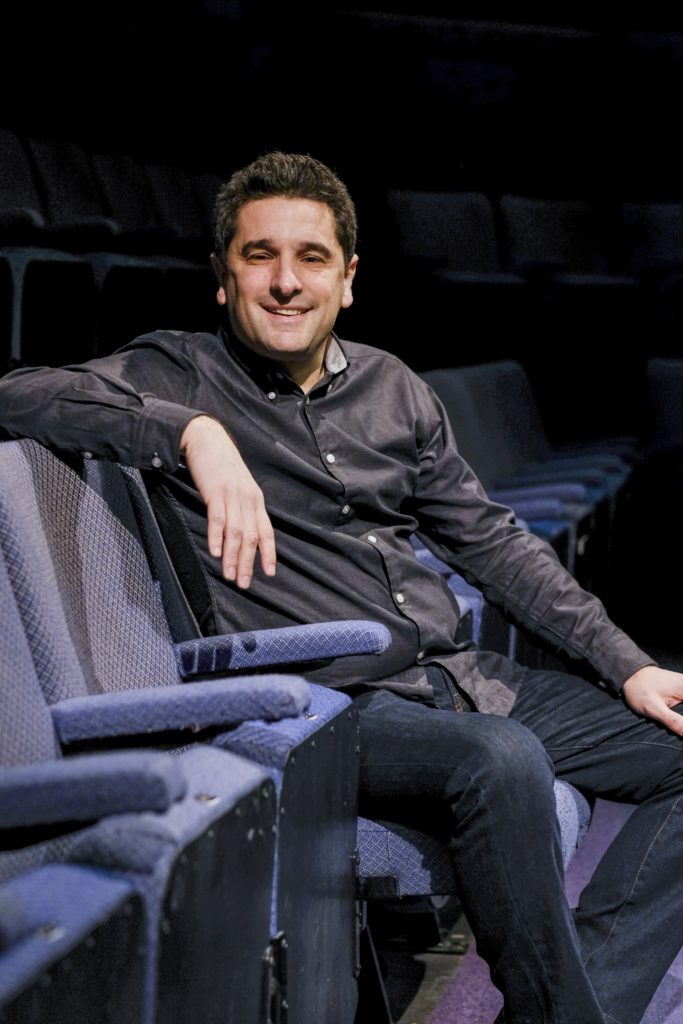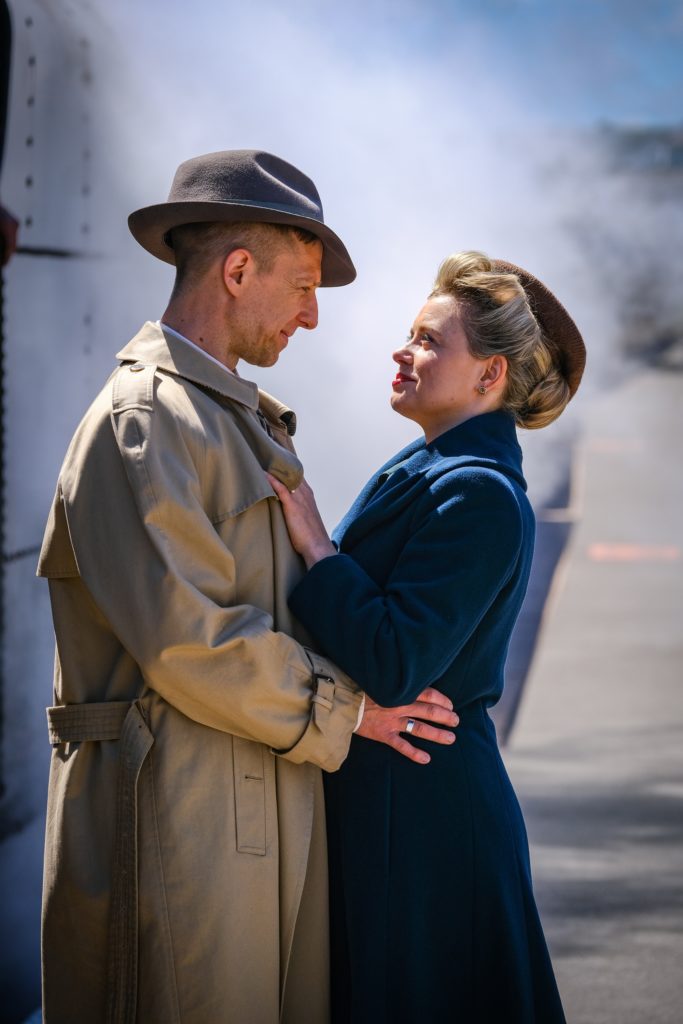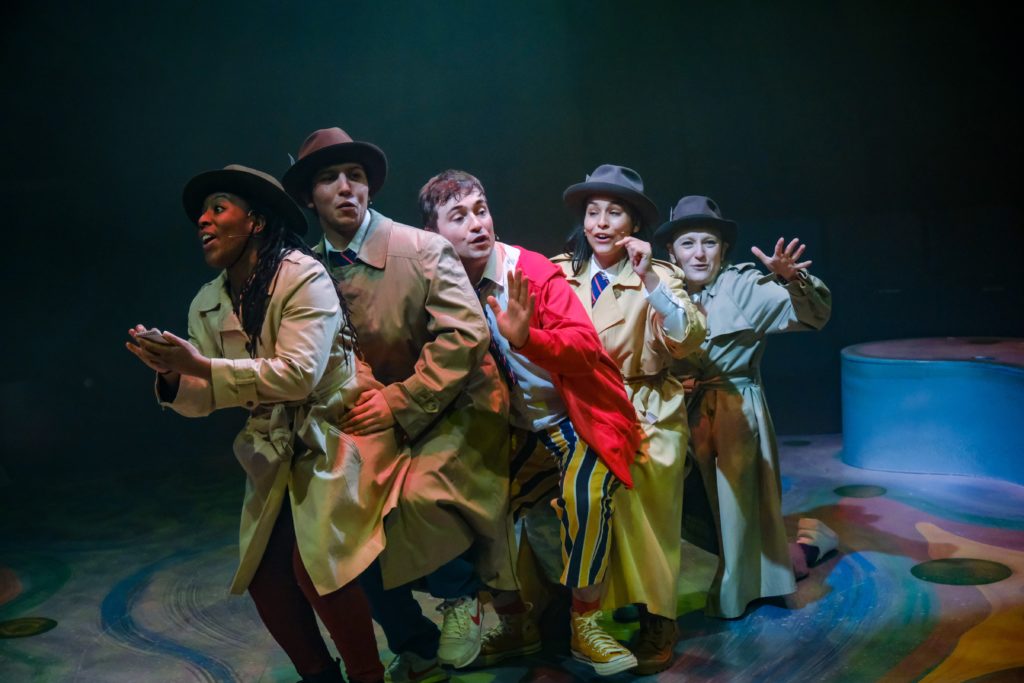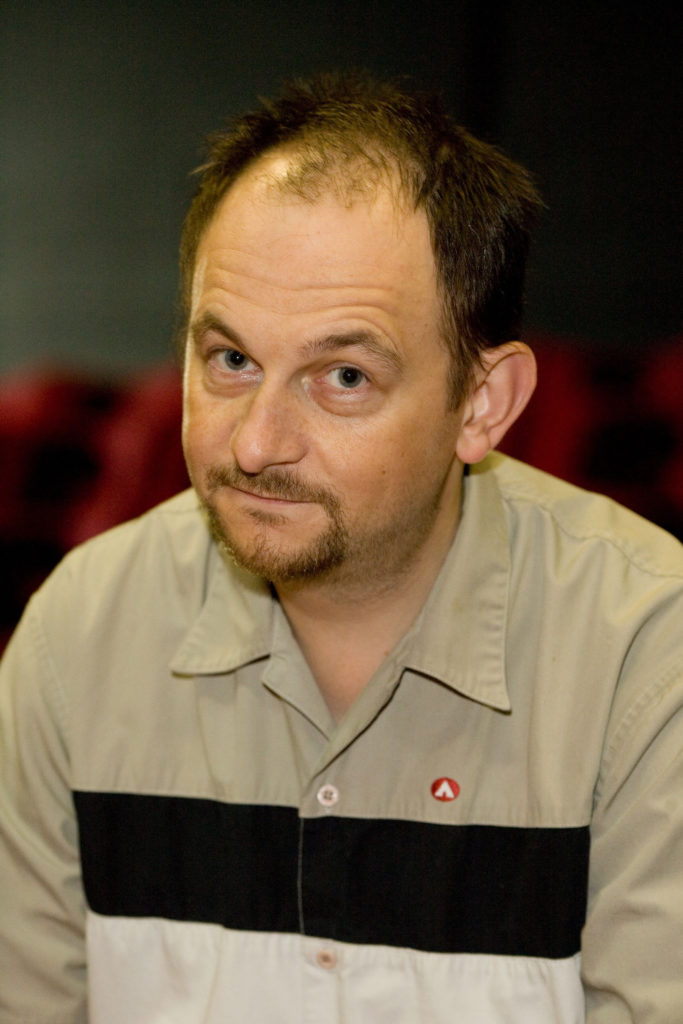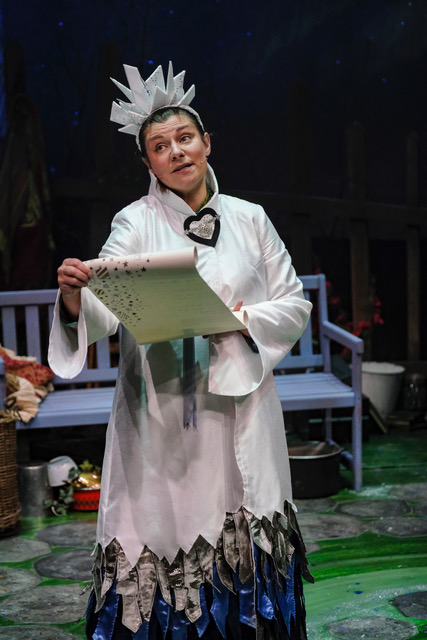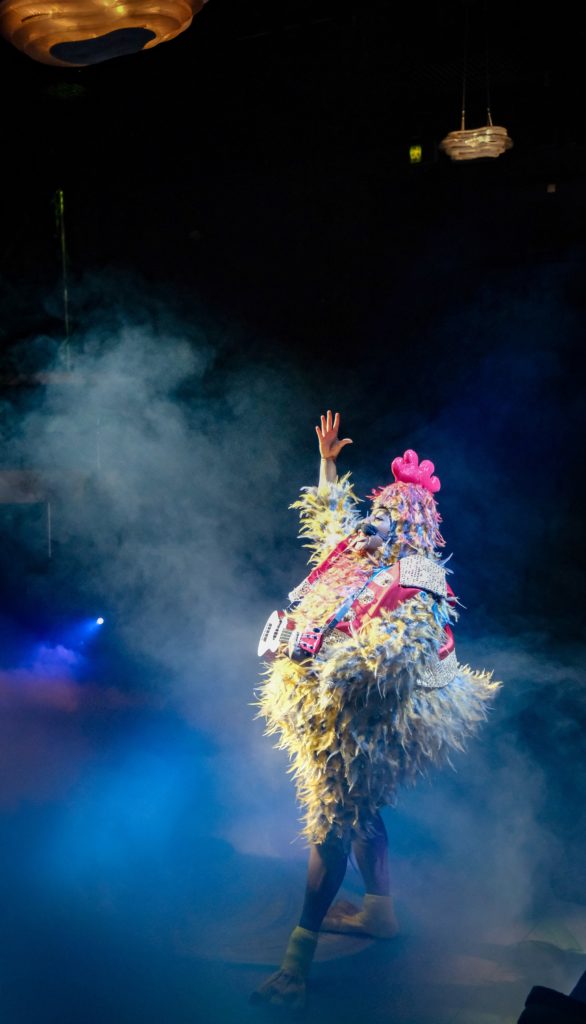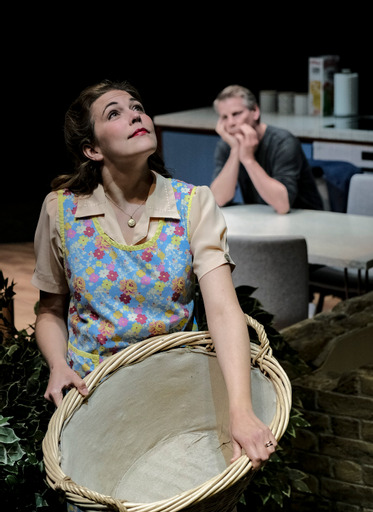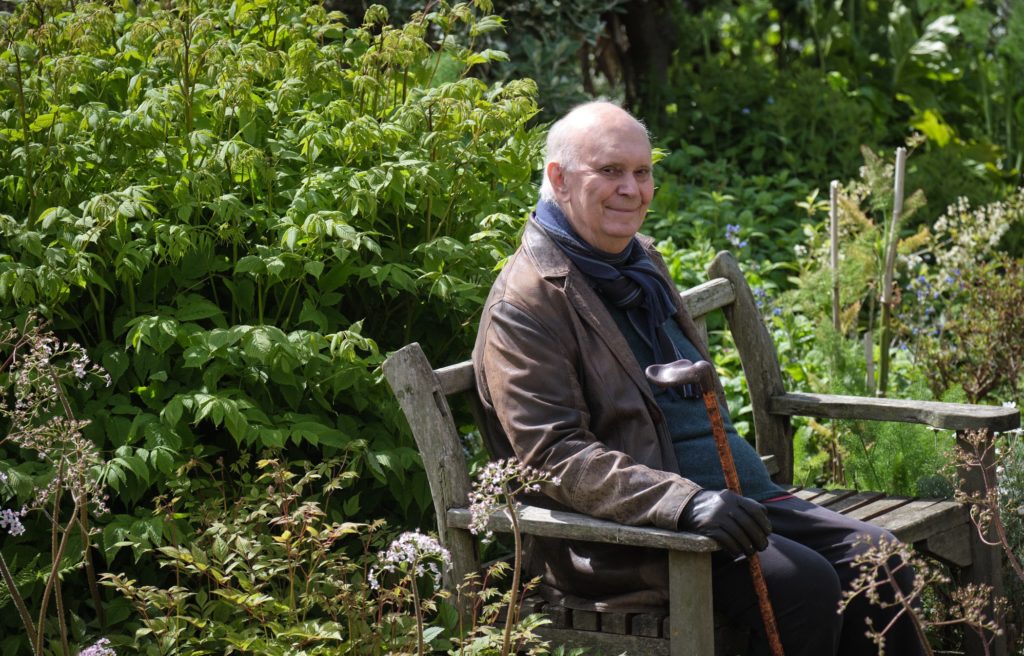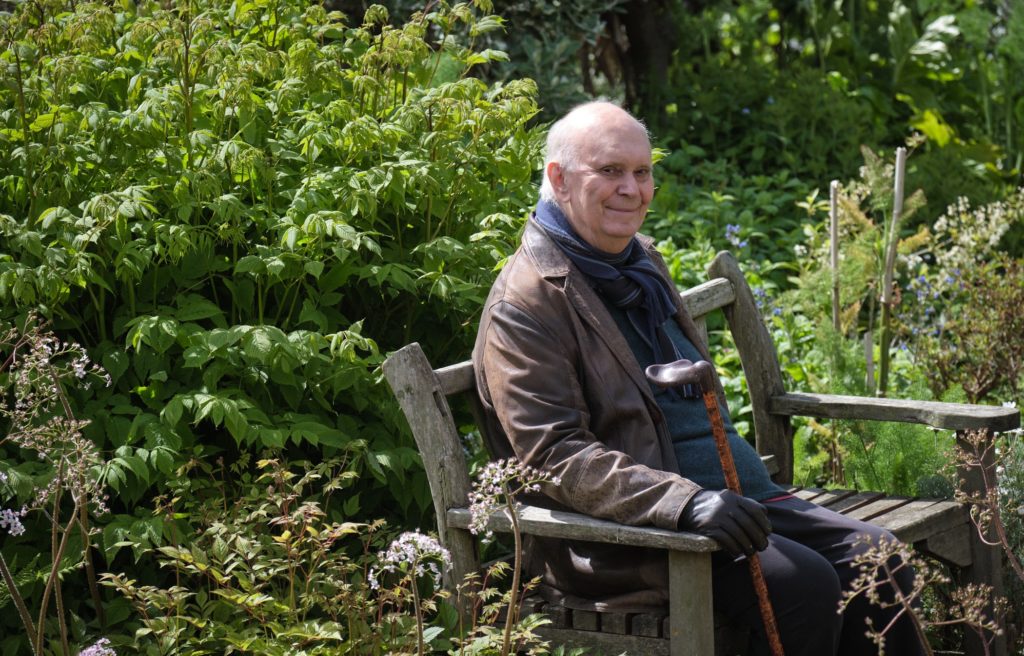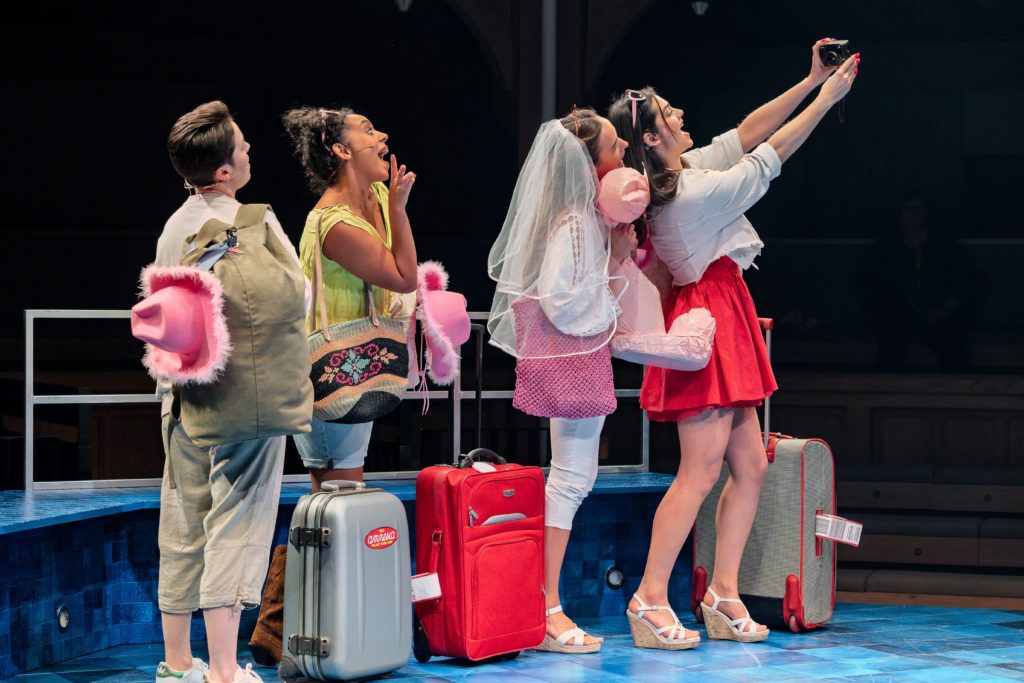
The hen party heading for Menorca: Jo Patmore, left, Alyce Liburd, Annie Kirkman and Alice Imelda in Love’s Labour’s Lost (More Or Less). Picture: Patch Dolan
A STAG do in Ibiza. A hen do in Menorca. What could go wrong? Everything…in Love’s Labour’s Lost (More Or Less) at the Stephen Joseph Theatre, Scarborough.
The stags have made a solemn promise to each other: this is a boys’ weekend. Don’t talk to any girls, don’t even think about any girls, and most importantly, do not contact the hens.
The hens are ready for fun in the sun when the resort calls to say they’ve had to relocate them…to a hotel in Ibiza. Both groups of revellers are stuck on the same Mediterranean island. Cue shoddy disguises, mislaid love letters and theatrical chaos.
Repeating the Hutch Award-winning formula of 2023’s co-production of The Comedy Of Errors (More Or Less) with Precot’s Shakespeare North Playhouse, set in the heat of a 1980s’ clash of Yorkshire and Lancashire, Shakespeare’s riotous comedy is brought to life anew in the 1990s with belting musical numbers from the era of boy bands and Girl Power.
The same creative team reunites for Love’s Labour’s Lost (More Or Less): co-writers Nick Lane and Elizabeth Godber (daughter of playwright John Godber), director Paul Robinson and composer and sound designer Simon Slater. In the production team too are designer Jess Curtis, lighting designer Jane Lalljee, musical director Alex Weatherhill and choreographer Stephanie Dattani.
Co-writer Elizabeth Godber says: “I’m so excited to be back working with Nick, the SJT and Shakespeare North on another hilarious Shakespeare adaptation.
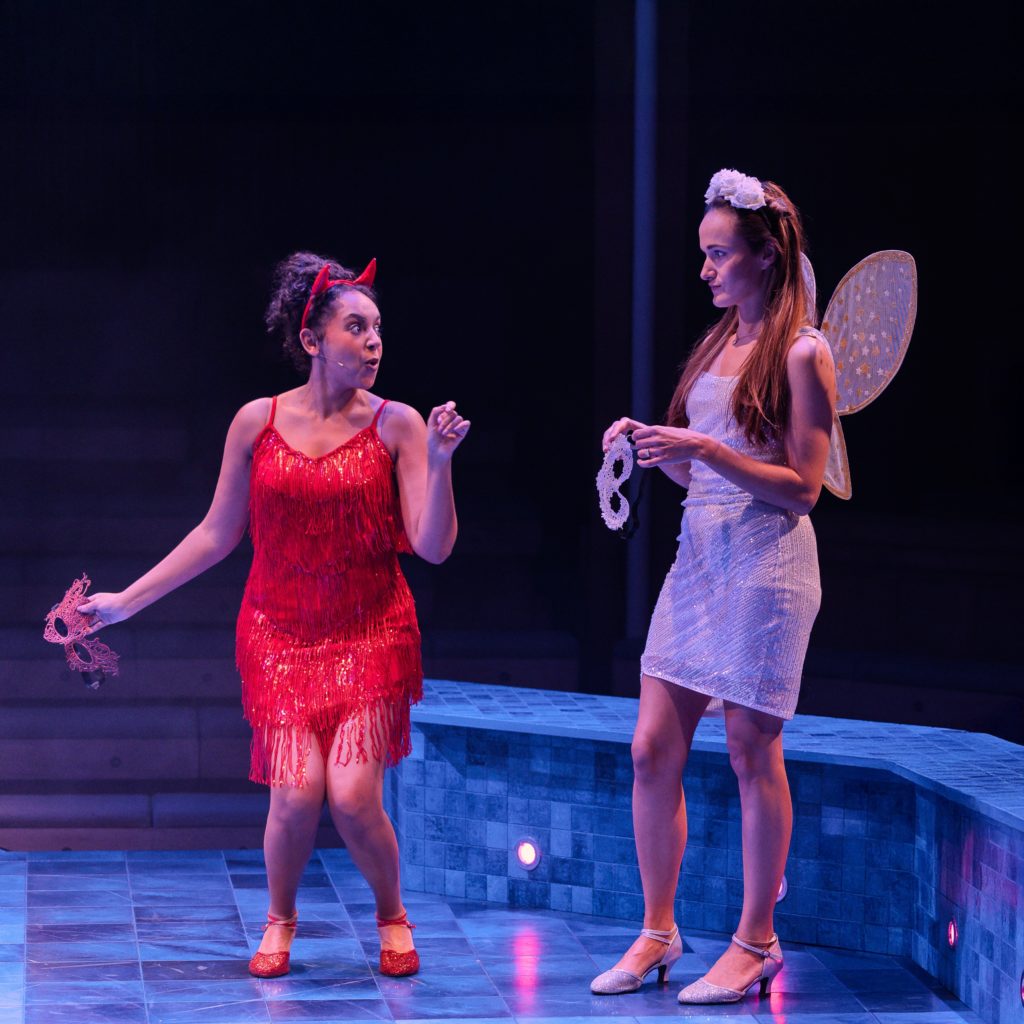
Unmasked: Alyce Liburd and Annie Kirkman in Love’s Labour’s Lost (More Or Less). Picture: Patch Dolan
“Love’s Labour’s Lost is one of my favourite Shakespeare plays, and to get the chance to play around with the language, develop the (already great) female characters, and add in plenty of 1990s’ pop classics, has been an absolute joy!
“I can’t wait for audiences to come and see the show. It’s funny, irreverent, and I’m sure Shakespeare would approve – he would have definitely been a Britpop fan!”
SJT artistic director Paul Robinson says: “We had the most enormous fun making The Comedy Of Errors (More Or Less) in the spring of 2023, and our audiences did too! We couldn’t resist following it up with another of the Bard’s early comedies, this time set a decade later in the midst of the party era that was the 1990s.
“We’ll again be including some great music from the period, and just wait until you see those 90s fashions again!”
Shakespeare North Playhouse creative director Laura Collier says: “After the success of our 2023 co-production – a show so entertaining that people kept coming back for more – we knew we had to join forces again.
“We’re absolutely thrilled to be working with the Stephen Joseph Theatre again, alongside talented writers Nick Lane and Elizabeth Godber. We all share a deep love for Shakespeare and his timeless tales, and a passion for exploring and presenting fresh, exciting perspectives and reworkings – a perfect foundation for an outrageously fun Love’s Labour’s Lost. We can’t wait to see what lies in store when we’re all transported back to the ’90s.”

Co-writer Elizabeth Godber: “I don’t think of it as a rewriting of Shakespeare; I think we’re twisting it, we’re putting a northern spin on it,” she says
Here co-writers Nick Lane and Elizabeth Godber discuss everything (more or less) about Love’s Labour’s Lost (More Or Less).
How were you first brought together for The Comedy Of Errors (More Or Less)?
Nick: “I was asked by Paul [SJT artistic director Paul Robinson, the show’s commissioning director] if I’d be interested in teaming up with a writer to do a modern version of Shakespeare.
“He had this idea about making Shakespeare accessible, demystifying it, making it relevant and funny, and playing around with titles that people know but aren’t necessarily plays that people know.
“Independently of each other, we came up with Liz. I wanted to work with Liz because I’ve known her all her life, and I got my wish!”
Elizabeth: “I’d done some writing development work at Scarborough before, so Paul was aware of my work, so when they were looking for someone to team up with Nick, he called me.”
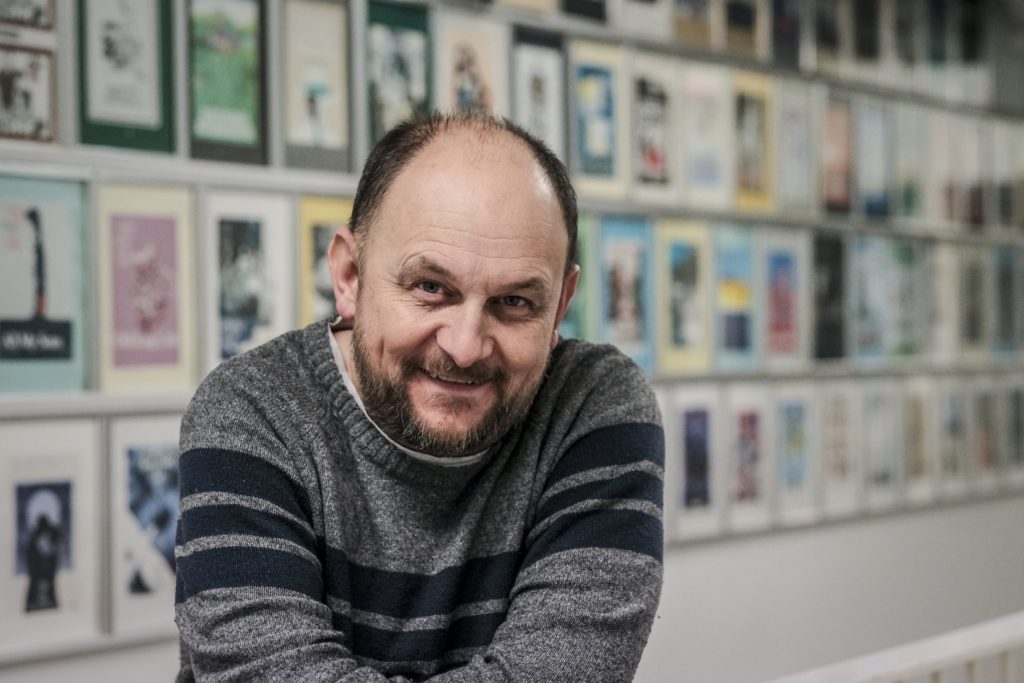
Do you have any qualms about rewriting Shakespeare?
Nick: “For me, initially, yes, but knowing that Liz knows lots more than I do about Shakespeare, I did feel like I was in safe hands, and it was a good partnership – we share a similar sense of humour. But we were both making it up as we went along.”
Elizabeth: “Yes, I had reservations, of course – it’s a big thing to do! But at the same time we both had this thought in our heads that we wanted to do something different, that was accessible and fresh. I don’t think of it as a rewriting of Shakespeare; I think we’re twisting it, we’re putting a northern spin on it.”
What is your process for writing – together or separately?
Elizabeth: “This time, for Love’s Labour’s Lost (More Or Less), it’s been much more together than on Comedy Of Errors – we’ve learned and grown from that. We write some things separately, and we send emails and share, and we’ve got about a thousand voice memos on WhatsApp. Then we meet up multiple times, and we’ll spend a day going through everything we’ve written, tweaking and changing each other’s stuff.
Nick: “And enjoying some very nice meals…
Elizabeth: “And eating lots of biscuits!”
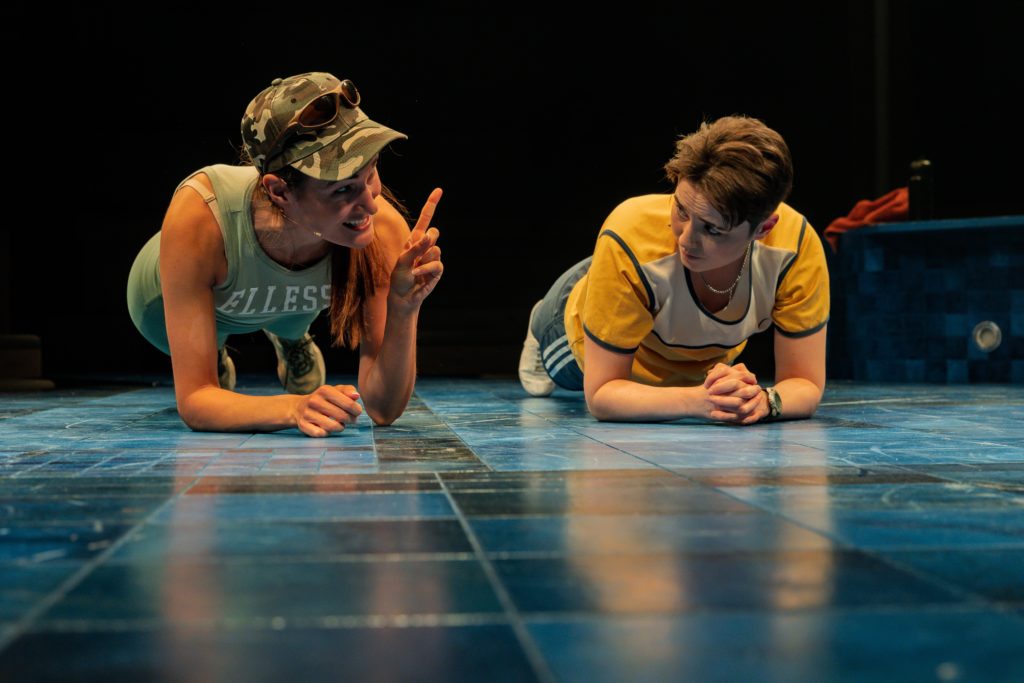
Annie Kirkman and Jo Patmore in Love’s Labour’s Lost (More Or Less). Picture: Patch Dolan
What different qualities do you both bring to the writing?
Nick: “The fun thing for me is – well, the read-through is a perfect example. I sat through the read-through and laughed heartily at all the stuff Liz put in, and sort of smiled at my own bits and thought, ‘yes, that kind of works’. But I think we both find each other’s stuff funny.”
Elizabeth: “I would say that Nick brings a font of knowledge of random facts! He can pinpoint something exactly: ‘In August 1989, people weren’t doing that’.”
Nick “I do have a silly memory for things, it’s true. And Liz is cracking on all things Shakespeare – and when you have a silent third partner, that’s really, really useful.”
Why have you set Love’s Labour’s Lost (More Or Less) in 1990s’ Ibiza?
Elizabeth: “We knew we wanted to do Love’s Labour’s Lost, and we also had this idea for a stag-and- hen thing, which, if anyone’s read the original, it does kind of fit: there’s this kind of boys versus girls thing. That, and the club scene, and the ’90s, just felt like a good fit for the story.”
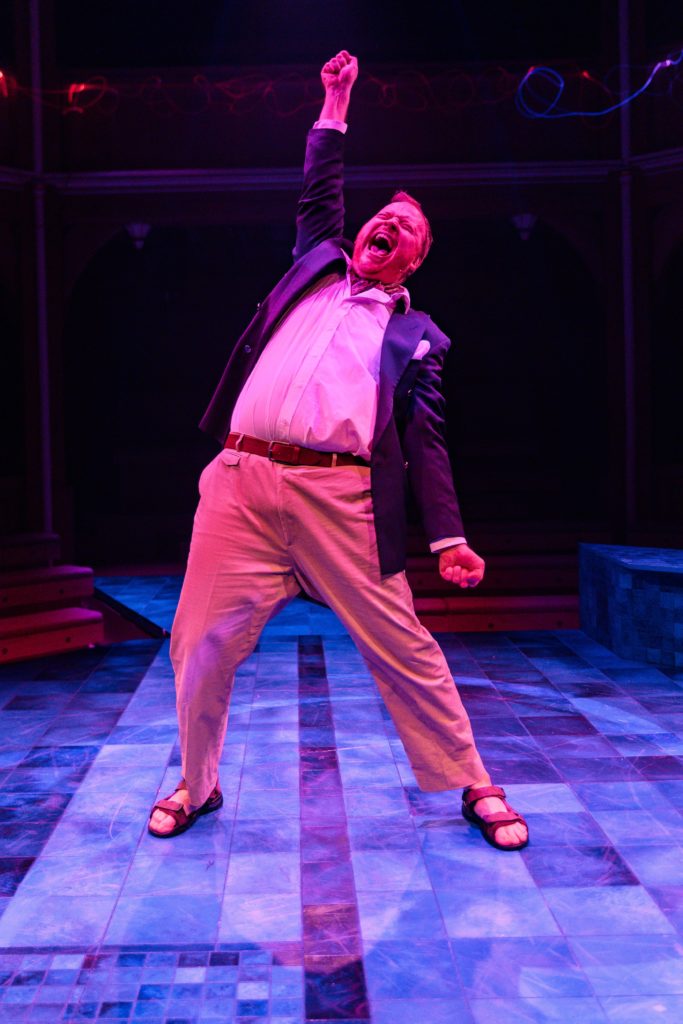
David Kirkbride punching the air in Love’s Labour’s Lost (More Or Less). Picture: Patch Dolan
Nick: “It helps that you’re in an era before mobile phones. It’s fascinating how quickly we’ve adopted these things – they’re so intrinsically linked with our everyday lives now, and only 25 years ago, they existed, of course, but they weren’t the all-encompassing tools that they are now.
“I guess if we’d set it a bit later, it would have been erroneous text messages instead of the misdirected letters, but there’s no romance in texts, is there?”
How difficult was it making the song choices? Any particular favourites?
Elizabeth: “I loved making the song choices! The ’90s are my childhood; it’s very, very nostalgic and takes me back to school discos and primary school and brings me great joy. My favourite is probably the Spice Girls.”
Nick: “The opening number is Girls & Boys by Blur. If the Spice Girls were the ’90s for Liz, then Blur was kind of my thing – I was in my 20s.”
Where were you in the 1990s?
Elizabeth: “I was in Hull – being born and growing up!”
Nick: “Predominantly Doncaster, but I toured a lot – with Hull Truck, for Liz’s dad [playwright John Godber]!”
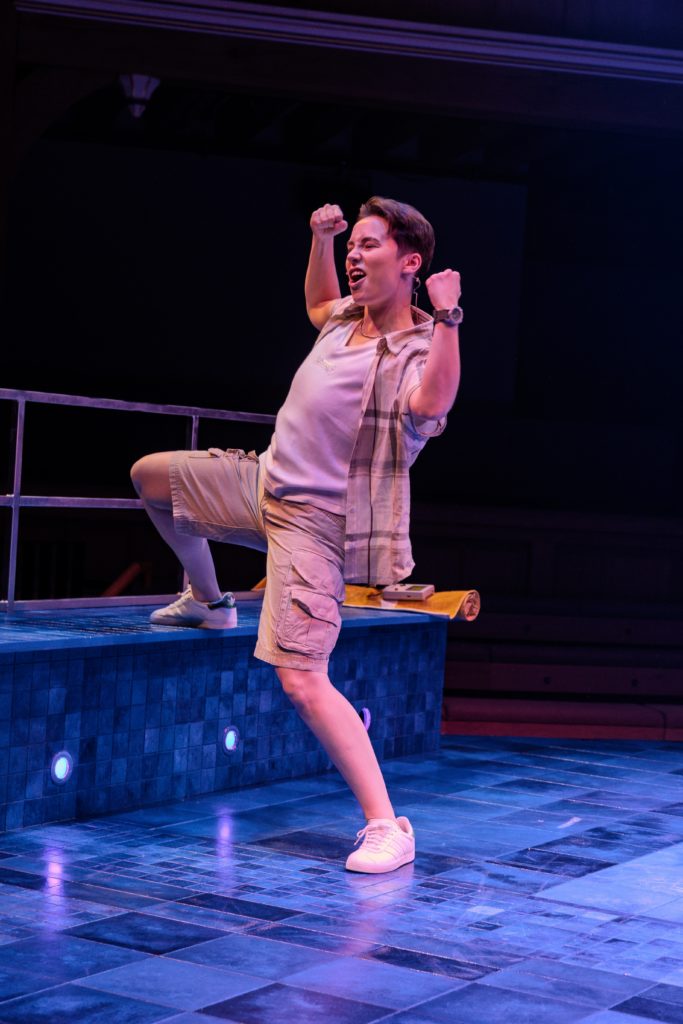
Jo Patmore in Love’s Labour’s Lost (More Or Less)
Have you ever acted in Shakespeare?
Nick: “No, I never have. I’ve done verse – I was in Tony Harrison’s Passion and Doomsday, but never a Shakespeare.”
Elizabeth: “I was in a school production, a 20-minute version of Romeo and Juliet – and in that production, I met my now husband!”
Nick: “I can even quote you your one line in that. It was ‘No’.”
Elizabeth: “It was! I think I’m better on Shakespeare when I’m not acting in it.”
Will Shakespeare be spinning in his grave at the prospect of Love’s Labour’s Lost (More Or Less) or giving it a five-star review (more or less)?
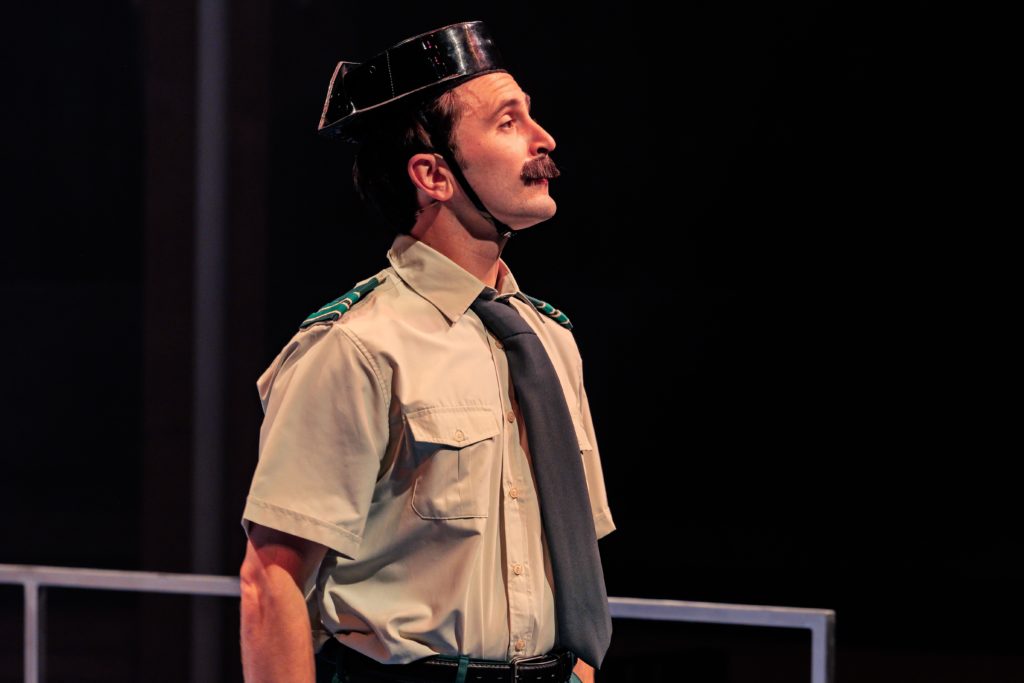
Thomas Cotran in Love’s Labour’s Lost (More Or Less). Picture: Patch Dolan
Nick: “I would hope that if he is spinning, it’s to a 120 bpm dance track. He was a modernist in his day; he was satirical; he referenced things that were very of the time, and I think if he was writing now, he’d want to reflect the time and the politics. I think he’d be all right with it.”
Elizabeth: “We want to make a show that people come to see and have a great time, and I think that Shakespeare wouldn’t be against that – I think that’s what he wanted to do, too.”
Which Shakespeare play would you like to rewrite (more or less) next?
Nick: “One for Liz. I don’t know enough of them!”
Elizabeth: “I think I’d quite like to do A Winter’s Tale, because I really like the Shakespeare plays that are a little less done, that people don’t know as much about. I think that’s interesting. Love’s Labour’s Lost is one that people don’t know as well, and you can bring it to more people – that’s exciting. But my favourite is As You Like It, so…”
Stephen Joseph Theatre and Shakespeare North Playhouse present Love’s Labour’s Lost (More Or Less) at Stephen Joseph Theatre, Scarborough, until April 19, Monday to Saturday, 7.30pm, plus 1.30pm Thursday and 2.30pm Saturday matinees. Box office: 01723 370541 or sjt.uk.com.

An ensemble scene from the Stephen Joseph Theatre and Shakespeare North Playhouse co-production of Love’s Labour’s Lost (More Or Less). Picture: Patch Dolan
Who’s in the cast for Love’s Labour’s Lost (More Or Less)?
Thomas Cotran; Alice Imelda; Linford Johnson; David Kirkbride; Annie Kirkman; Alyce Liburd; Timothy Adam Lucas and Jo Patmore.
Four of the company have appeared at the SJT already: Linford Johnson was in Alan Ayckbourn’s The Girl Next Door in 2021, and Annie Kirkman appeared in 2023’s UK Theatre Award-winning Beauty And The Beast, returning in summer 2024 to play the title role in Dracula: The Bloody Truth. She also starred in John Godber’s Perfect Pitch, on tour.
David Kirkbride and Alyce Liburd were in the SJT’s first co-production with Shakespeare North Playhouse, the UK Theatre Award-nominated The Comedy Of Errors (More Or Less) in Spring 2023. Alice appeared in in Dracula: The Bloody Truth too.
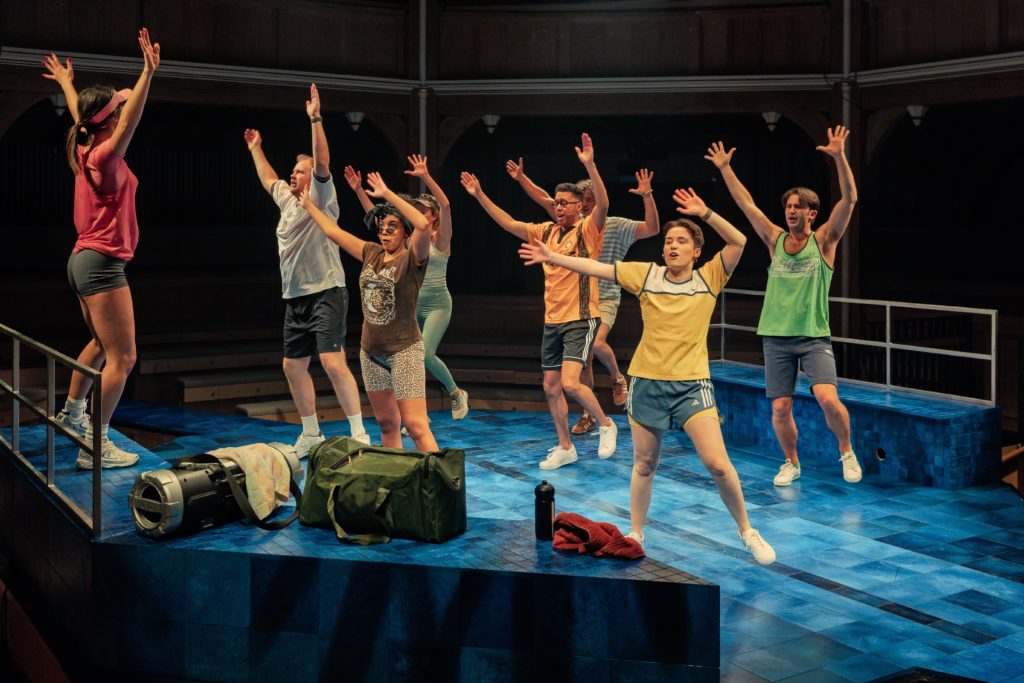
Movin’ and groovin’ in Love’s Labour’s Lost (More Or Less). Picture: Patch Dolan
What’s on the playlist in Love’s Labour’s Lost (More Or Less)
1. Blur: Girls & Boys
2. Britney Spears: …Baby One More Time
3. Shania Twain: Man! I Feel Like A Woman!
4. Meat Loaf: I’d Do Anything For Love (But I Won’t Do That)
5. iNi Kamoze: Here Comes The Hotstepper
6. No Doubt: Don’t Speak
7. Aerosmith: I Don’t Want To Miss A Thing
8. Boyz II Men: I’ll Make Love To You
9. Backstreet Boys: Everybody (Backstreet’s Back)
10. Spice Girls: Stop
11. Cher: The Shoop Shoop Song (It’s In His Kiss)
12. Prince: 1999
13. Vengaboyz: We’re Going To Ibiza!
14. Take That (feat.Lulu): Relight My Fire
15. Vanilla Ice: Ice Bay Ice
16. Macarena: Los Del Rio

